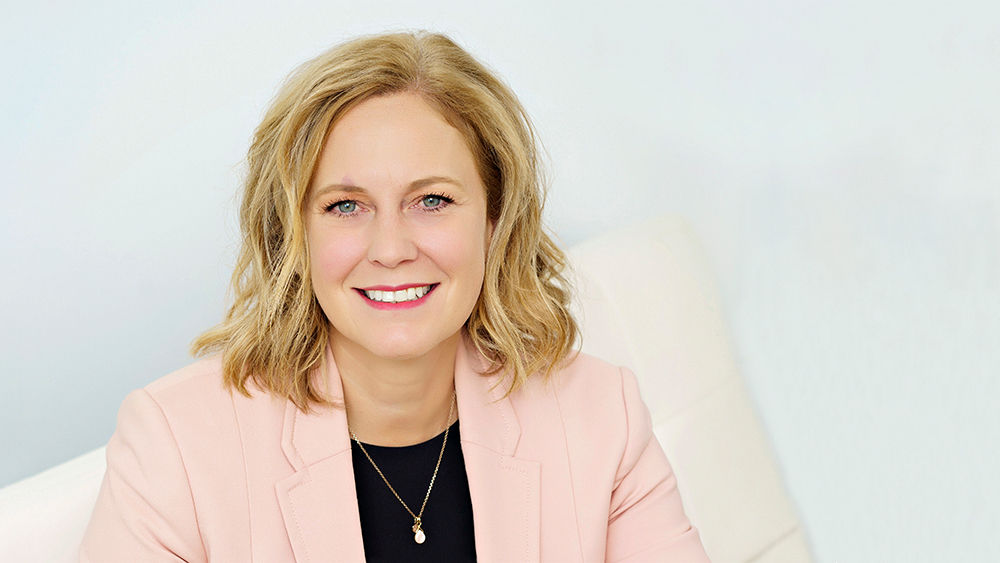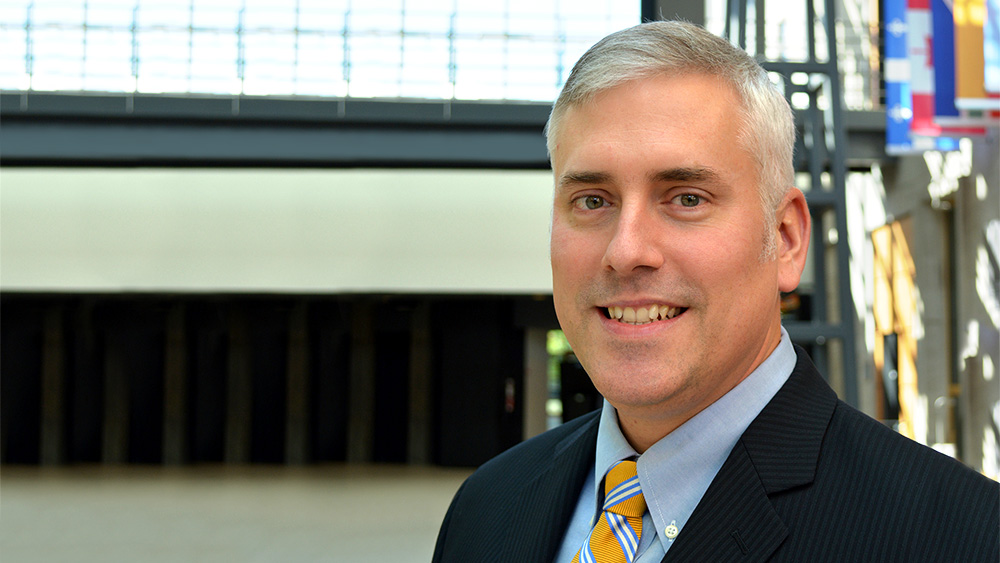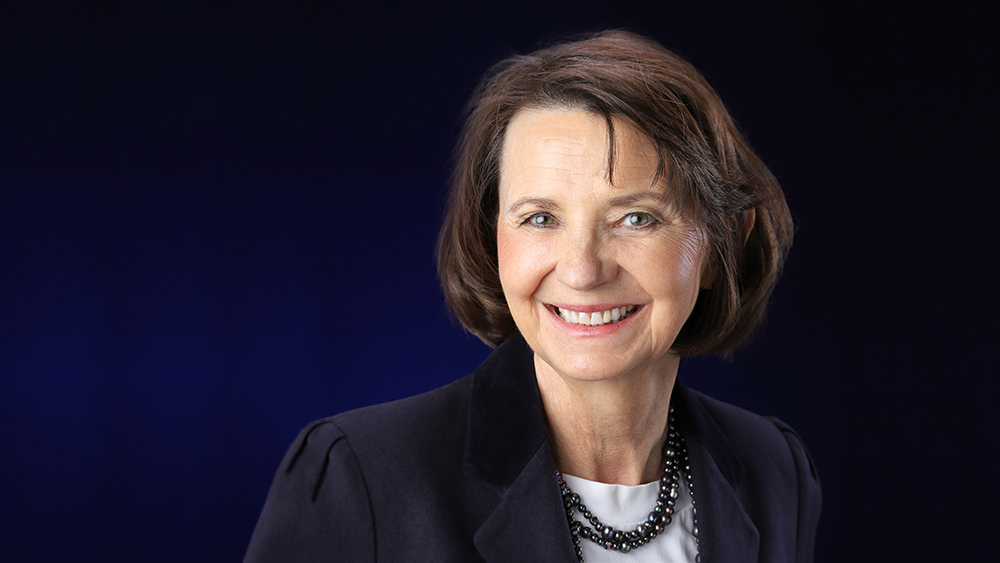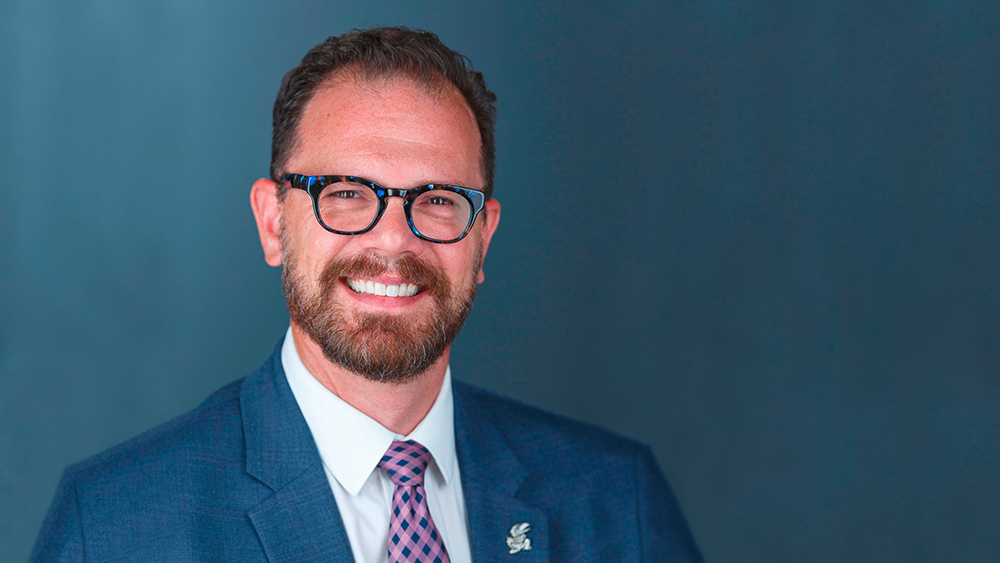Germany Today 2022: “A valuable contribution to the development of partnerships”
 DAAD
DAAD
Participants in the DAAD’s “Germany Today” information tour visited Campus North at the Karlsruhe Institute of Technology (KIT)
Twenty-one representatives of leading universities, research institutions and funding organizations in the United States and Canada, along with experts on educational policy, visited Germany in June. At the invitation of the German Academic Exchange Service (DAAD), they participated in a one-week “Germany Today” information tour. Four of the participants describe their impressions.
The purpose of the DAAD “Germany Today” information tour is to give participants a broader sense of Germany’s higher education landscape. “Our goal is to familiarize our North American guests with Germany’s higher education and research system, as well as to provide an update on all that is happening in our country in this area,” explains Dr. Christian Schäfer, head of the DAAD’s Research and Studies section, who organized the tour in cooperation with Uta Gaedeke, Senior Program Officer at the DAAD New York office. “That includes innovative projects and structural reforms, details regarding bachelor’s, master’s and PhD programs, information about funding opportunities, and insight into our universities’ institutional strategies to promote internationalization.” Participants also had a chance to establish personal contacts, an important foundation for future cooperation. “Another purpose of the information tour is to convey a positive image of the host country, and in general to foster interest in Germany as a cooperating partner,” Schäfer adds. The DAAD has been organizing the “Germany Today Program” for more than 40 years.
This time the focus was on European University alliances, which meant visiting German universities that are involved in such alliances and supported by the DAAD through the accompanying national program. These include the University of Freiburg and the Karlsruhe Institute of Technology, along with a French partner university, the University of Strasbourg (all of which are participating in EPICUR), the University of Heidelberg (4EU+), Darmstadt University of Applied Sciences (EUt+), the Technical University of Darmstadt (UNITE!), and Johannes Gutenberg University Mainz (FORTHEM). They all provided valuable insight into their activities, introducing the guests to a broad range of European university alliances. The participants also had opportunities to share their perspectives and expertise. Four of them describe the impressions they gained during the course of the tour.
“A unique experience and a good overview of Germany’s higher education system”

Jamie Bard Dube
Buffy St-Amand, Director, Strategic Global Initiatives, University of Calgary International, Canada
“UCalgary has been fortunate to have many collaborations with German institutions over the years. I was delighted to be given the opportunity to join this year’s Germany Tour to further develop our academic and research collaborations between our countries. This unique experience provided me personally a broad overview of the German’s higher education landscape, including a better understanding of the research systems, programs, and funding opportunities to further academic, research, and institutional collaborations, which are all of great importance for our team at UCalgary. It was even more special this year, as borders were opening again and traveling was resuming, which was very exciting for me to be in Germany meeting with colleagues and potential partners in person again!“
Read more
“I was grateful to learn about the European University Alliance models and how it is shaping the future of partnerships in Europe. Building this new kind of European University is a huge undertaking that requires commitment, innovation, and a new way of intensifying collaboration among higher education institutions in Europe. Through the various European University Alliance models, we learned about on the tour, I heard key concepts and values that emerged in each of the presentations on alliances: new forms of cooperation, the university of the future, entrepreneurial ecosystems, innovation, new learning modules, courses, and mobility forms, working across disciplines, languages, sectors, and borders to address societal challenges to name a few. UCalgary is committed to all these values, and we look forward to building and expanding strategic relationships in our areas of academic, innovation and research strengths by further building partnerships with top universities and organizations in Europe. The tour was packed with a flurry of ideas and many quality discussions with our German, French, American and Canadian colleagues on ways we can contribute and take part in these alliances in the future.
I was very impressed by the universities we visited and wished we had more time with each of them. A sincere Thank you / Merci beaucoup / Danke to those seven universities who hosted us and shared their knowledge and wisdom about their experiences with the European University Alliance model and for their passion for higher education and international collaborations. I look forward to applying what I have learned and to staying connected to my travel group, DAAD, and the universities we have visited.”
“The best way to engage with German Higher Ed”

Andre Perron
Prof. Dr. Yan Cimon, Director of International Affairs und La Francophonie, Deputy Vice-Rector, Université Laval, Quebec City, Canada
“As Université Laval (Quebec City, Canada) embarks on a bold internationalization strategy – and because Germany is among the European countries we collaborate with the most – I was honoured to have been invited to join the June 2022 iteration of DAAD’s Germany Today program. This program truly is masterfully organized. Its uniqueness resides in allowing targeted networking opportunities with researchers and academic administrators who would otherwise be very difficult and costly to reach in a reasonable timeframe. As such, it is a true catalyst for partnership development. In the case of our university, the program definitely helped cement existing relationships and opened the door to many high-potential collaborations. Also, this iteration’s focus on Baden-Württemberg and Hessen brought a judicious balance between logistical constraints and the variety of universities we visited. It was wonderful to be able to meet with such a broad range of universities like the University of Heidelberg, Technical University Darmstadt or Johannes Gutenberg University Mainz. This broad perspective is a defining contribution of the program.“
Read more
“A distinctive feature of the June 2022 iteration of program has been our exposition to – and extensive discussions about – the European University Alliance model. This model is very promising as it allows for high levels of intra-European geographic and institutional diversity, like 4EU+, UNITE! or FORTHEM. Indeed, in such networks, Germany’s unique mix of higher education institutions represents an incredible asset. For example, in the case of EPICURE, having had the chance to meet with the University of Freiburg and Karlsruhe Institute of Technology while getting a non-German partner’s point of view like Université de Strasbourg confirms that perspective. Similarly, an innovative venture like EUt+, that aims to become a full-fledged European University of technology, stands out as the Darmstadt University of Applied Sciences plays a pivotal role with a strong leadership. It seems that European University Alliances with a history of fruitful collaborations between members or those with a laser-like distinctive focus will come out as winners. Furthermore, Alliances that will leverage the non-European partnerships of their members will undoubtedly become global leaders for innovative research and fruitful mobility efforts (student and faculty).
In conclusion, the Germany Today program is probably one of the best tools for German outreach in the higher education sector. It is a unique way to explore collaborative potential, to highlight German leadership and to build value-added partnerships that will benefit students, faculty, and institutions alike.“
“Encouraged to renew my efforts to promote a ‘sovereign, united and democratic’ United States”

Privat
Dr. Debra Larson, Vice President Academic Affairs und Provost, California State University, Chico, USA
“A total of twenty-one travelers from Canada and the United Stated took part in the 2022 Germany Today Informational Tour. We were a diverse group of administrators and directors with differing portfolios of responsibilities and from many different types of universities. This diversity enabled a fuller experience for each participant. As we visited and engaged with our German university hosts, we learned from each other through the questions we asked, the dialog we engaged in, and from our post-visit chats over dinner or on the bus. As Provost at Chico State University and as the former Dean of Engineering at Cal Poly San Luis Obispo, my tour interests ranged from learning more about the generalized system of German universities and its current activities, and specifically about the German approach to engineering and technology education. I was not disappointed. The DAAD interactive tour provided us with the intellectual freedom to explore, learn, network, and grow in our knowledge and affection for Germany, German higher education, and international education. Though we experienced a few troubling moments during the tour due to the unforeseen, Christian and Uta were able to find solutions that enabled the tour to go on. Nearly every day, Christian would give us the bad news that was followed quickly by the good news; with flexibility Christian and Uta made small revisions and adaptations that enabled a very successful trip. I think I may speak for the group when I say that Christian and Uta are the best.“
Read more
“Although five days feels short, within the one week we were able to visit five distinctly different universities that spanned the diversity of the German system. We were able to draw parallels between the United States and Canada, and of that in Germany, while also getting a deeper appreciation for the differences. We shared insights and observations with our German colleagues at our lunches or dinners while sampling German cuisine. In addition to Chico State, I was also representing the California State University system, which created a natural synergy for me with the Universities of Applied Sciences and the Technical Universities. Many of my colleagues realized synergies with the traditional comprehensive universities as they explored PhD training opportunities for our qualified students and potential faculty assignments. A personal highlight for me was our visit to the Johannes Gutenberg University Mainz where Chico State has had a long-standing student exchange program in place since 1970. The visit was organized around a world café style of discussions that encouraged meaningful dialog and welcomed connections between tour members and the faculty, staff, and students of JGU.
At every stop on the tour, our university hosts presented information on their specific alliance established in response to the European University concept. Each of the five alliances (EPICUR, 4EU+, EUt+, UNITE!, and FORTHEM) were at different stages of development, yet were each guided by President Emmanuel Macron’s 2017 speech on re-establishing a sovereign, united, and democratic Europe. His challenge included the creation of a network of universities across Europe to drive educational innovation, excellence, and eventually, the European diploma. I was struck by the commonality of goals across the alliances regardless of university types. These included: bottom-up networks, integrated mobility, innovative study concepts, diversity, social inclusion, and regional development. Most articulated their academic programming through an excellence in research – basic or applied. Personally, however, the commitments and passion for the European Identity pushed me to reflect upon the situation in the United States and the visible concerns about our own democratic processes and ideals. As a senior administrator of an American university, I fear that we’ve dropped the ball on educating an informed citizen prepared to participate fully in the democratic process. I am encouraged by the possibility of recommitting to “a sovereign, united, and democratic” United States in parallel to the efforts of Europe. Thank you for the opportunity to gain this insight that I will carry forward in my day-to-day work.
Our activities in higher education are expanding, and students’ interests and ways of accessing education is rapidly evolving as the world transitions from a pandemic to an endemic. The changing landscape of higher education, which was accelerated by the pandemic, has invited us to reimagine the future and our role in preparing graduates for that future. The Germany Today Tour was a wonderful opportunity for administrators from the United States and Canada to come together with German colleagues in a process of learning and reimagination that may eventually lead to agile and responsive international alliances and effective inter-university approaches.“
“The EU should continue to promote transatlantic research cooperation and talent mobility”

University of Kansas
Dr. Charles Bankart, Associate Vice Provost for International Affairs and Member of the Graduate Faculty for Global and International Affairs, University of Kansas, USA
“The institutions we visited were wonderful hosts and provided our delegation with a variety of institutional perspectives and approaches to the European University Alliance initiative. How each institution is conceptualizing their alliance and alignment within their particular consortium was fascinating. The structural parameters became clear over the week, as did the areas of flexibility in which each participating institution and alliance is able to define their own priorities and capacities. I was struck by the complexity of the tasks that lie ahead for our colleagues, but also by their dedication to this idea of a common European University and identity. The focus on multiculturalism and multilingualism in the EU context was striking, maximizing the potential associated with EU mobility, the languages present within a particular alliance, and the linguistic foundations that students and faculty members have in their mother tongue and English, but establishing an expectation related to the acquisition of a third EU language in the context of curricular and research collaboration.“
Read more
“I was also deeply appreciative of the detailed planning on the part of Dr. Christian Schäfer and Ms. Uta Gaedeke. The orientation and sequence of visits were perfect, and the addition of the University of Strasbourg rounded out the view we were getting in terms of an EU perspective and set of approaches to these alliances. It was a great selection of institutions and institutional types, showing both the complexity of the higher education systems involved, but also highlighting the awesome potential of alignment in terms of furthering students’ educational preparation and faculty research.
While I am intrigued by the European University Alliance model, it was clear that this effort is just getting underway due to delays associated with the pandemic. That said, the university leaders we spoke with seem committed to this process and to the ideals associated with the promotion of a European identity. The interest in embracing the linguistic and cultural diversity of the EU and developing a set of alliances that are predicated upon that very diversity was exciting, even if we heard seven different interpretations of what a European university means from the seven institutions we visited.
From a North American perspective, I was excited about the alliances that are unfolding, but also a bit concerned. As alliances are formed within the EU, they risk becoming more insular in terms of student and faculty mobility, as well as in their partnership development and research collaborations. While several leaders indicated that their involvement in the alliance does not preclude trans-Atlantic collaboration, it was quite clear where the investment of time, energy, and funding is going right now. It will be critically important for non-EU research institutions and national funding agencies to track developments within the EU and ensure strategic alignment with the different research plans of the alliances. By having these consortia, it makes it easier for outside institutions to tap into complimentary capacities in the EU and benefit from larger collaborative engagement, but only if we are paying attention and effectively advocating for our inclusion. The EU should continue to incentivize and support trans-Atlantic research collaborations and talent mobility as a complimentary aspect of strengthening these unfolding alliances.“
(17 August 2022)